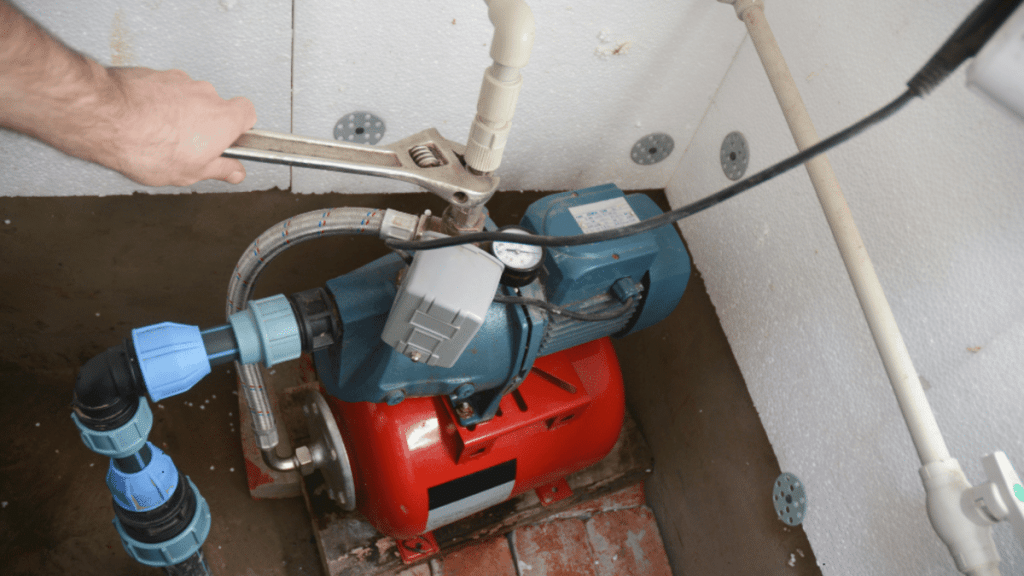Living in Miami offers many benefits: beautiful beaches, vibrant culture, and year-round sunshine. But with the perks of life in South Florida also come a few challenges, especially when it comes to managing water. From seasonal flooding to maintaining pools and irrigation systems, water pump installation is often a necessity for homeowners and businesses alike.
If you’re thinking about installing a water pump in Miami, this comprehensive guide will walk you through everything you need to know from types of pumps to installation requirements, local regulations, and tips for choosing the right contractor.
Why Water Pumps Are Essential in Miami
Water pumps serve various functions in homes and commercial properties, depending on your needs and property setup. Here are some of the most common reasons you might need a water pump in Miami:
1. Flood Prevention
Miami’s low elevation and proximity to the coast make it particularly vulnerable to flooding during heavy rainstorms and hurricane season. Installing a sump pump in a basement or crawlspace can help remove excess water and prevent structural damage.
2. Well Water Access
While many properties in Miami rely on municipal water, some homes—especially in rural or suburban areas—use private wells. In these cases, a well pump is necessary to extract and deliver water from underground sources.
3. Irrigation Systems
With year-round warm weather and frequent landscaping needs, irrigation is common in residential and commercial properties. A properly installed irrigation pump ensures efficient water distribution to your lawn, garden, or crops.
4. Swimming Pools and Water Features
Maintaining a pool requires a reliable pool pump to circulate and filter water. These pumps keep the water clean, safe, and properly chlorinated.
Common Types of Water Pumps Used in Miami
Understanding the different types of water pumps will help you select the right one for your specific application:
- Submersible Pumps: Installed below water level, commonly used in wells or flood control. They’re efficient and durable but can be more expensive to install and repair.
- Jet Pumps: Typically used for shallow wells. These are installed above ground and rely on suction to pull water up.
- Sump Pumps: Installed in a pit below a home’s foundation to collect and remove groundwater during heavy rains or floods.
- Centrifugal Pumps: Ideal for irrigation and HVAC systems. These pumps use rotating impellers to move water and are known for high flow rates.
- Booster Pumps: Used to increase water pressure in residential or commercial buildings. Especially helpful for multi-story properties or systems with low municipal water pressure.
Factors to Consider Before Installation
Installing a water pump in Miami isn’t as simple as picking one up from the hardware store and plugging it in. Several important considerations must be taken into account:
1. Local Regulations and Permits
Miami-Dade County has specific regulations regarding water systems and electrical installations. You may need a permit, especially if your pump is connected to the main water line or requires electrical work. Always consult with the county or a licensed professional before proceeding.
2. Property Assessment
A qualified technician should assess your property to determine the appropriate pump type, size, and location. Factors such as water table depth, soil type, and drainage patterns play a major role.
3. Power Requirements
Most water pumps require a dedicated power source. In a hurricane-prone city like Miami, it’s wise to consider backup options like a battery or generator to ensure continuous operation during power outages.
4. Drainage and Discharge
Where your pump directs the water is just as important as where it collects it. For sump and drainage pumps, make sure the discharge pipe routes water away from your home’s foundation, complies with Miami’s stormwater management codes, and won’t cause issues for neighboring properties.
What to Expect During Installation
Here’s a step-by-step overview of a typical water pump installation in Miami:
- Site Evaluation: The contractor evaluates the location and determines the ideal placement, pump type, and capacity based on your needs.
- System Design: They’ll design a system that integrates with your existing plumbing or irrigation layout and adheres to local code.
- Installation: This includes excavation (if necessary), electrical wiring, plumbing connections, and securing the pump in place.
- Testing: Once installed, the pump is tested to ensure it’s operating correctly and efficiently.
- Inspection (if required): A final inspection may be required by the city to verify compliance.
Cost of Water Pump Installation in Miami
The cost of water pump installation varies depending on the pump type, the complexity of the project, and whether new plumbing or electrical systems are required.
- Sump pump installation: $600–$1,500
- Well pump installation: $1,000–$2,500
- Irrigation pump system: $800–$2,000
- Pool pump replacement/installation: $500–$1,200
These figures are general estimates; for an accurate quote, it’s best to get an on-site consultation.
How to Choose the Right Installer
Choosing the right professional is critical to ensuring your water pump works properly and safely. Look for:
- Proper licensing and insurance
- Experience with Miami’s climate and codes
- Good reviews or referrals
- Transparent pricing and clear communication
Ask if the installer offers warranties and post-installation maintenance packages—these can be helpful for long-term peace of mind.
Maintenance Tips for Long-Term Efficiency
After your water pump is installed, keep it running smoothly with regular maintenance:
- Inspect and clean filters every few months
- Test sump pumps before hurricane season
- Monitor for strange noises or reduced performance
- Schedule annual checkups with a licensed plumber
Final Thoughts
Whether you’re preparing for storm season, maintaining your landscape, or improving water access on your property, installing a water pump in Miami is a smart move. With the right planning and professional help, you can ensure a seamless installation that protects your property and enhances daily convenience.
If you’re ready to install a water pump, reach out to a local expert who understands the specific needs of South Florida homes and businesses. A well-installed system today can save you from costly repairs and major headaches tomorrow.
